
THE VOICE OF INTERNATIONAL LITHUANIA
|
VilNews has its own Google archive! Type a word in the above search box to find any article.
You can also follow us on Facebook. We have two different pages. Click to open and join.
|
Author Archive
- Posted by - (1) Comment
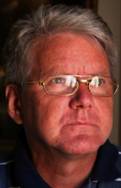
Aage Myhre,
Editor-in-Chief
New impetus, new ideas:
VilNews has today been online for 18 months!
18 months have passed since VilNews went online. A great success with infinitely many good suggestions and comments from you, our dear readers around the world.
We will now, step by step, take our publication to the next level. We ask you to support us, as our new CEO asks in today’s side columns. We also ask you to continue to write and participate in the very important process of connecting the global nation called Lithuania!
Below you will find some of our highlights from the 18 months we have now been online. Enjoy the read!
- Bookmark :
- Digg
- del.icio.us
- Stumbleupon
- Redit it
- Posted by - (0) Comment
Lithuania was a world super power for
more than 300 years!
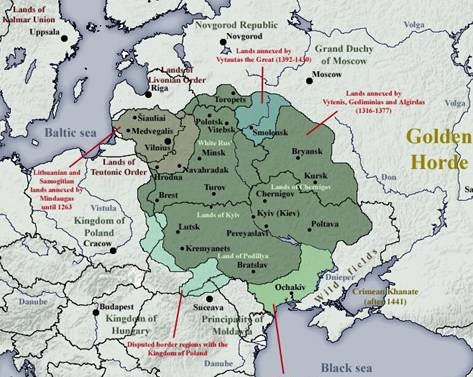
“Lithuania was a world superpower much longer than USA has been“. This is how I often tease my American friends arriving in Vilnius. But the teasing is in fact not so far from reality, as the Grand Duchy of Lithuania (GDL) for over 300 years was Europe’s biggest nation, stretching from the Baltic to the Black Sea.
It all started with King Mindaugas (1203-1263), Lithuania‘s first and only king, who in 1236 defeated the Livonian Brothers of the Sword and united the different Lithuanian tribes under his reign. But the real expansion began when Grand Duke Gediminas came to power in 1316, and started a new dynasty of leaders. Gediminas employed several forms of statesmanship to expand and strengthen the GDL, that totally lasted from 1253 to 1795.
- Bookmark :
- Digg
- del.icio.us
- Stumbleupon
- Redit it
- Posted by - (0) Comment
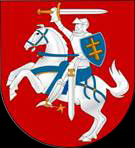 Chronicle of Lithuania –
Chronicle of Lithuania –
in a global perspective
I have, over the years since I first came to Lithuania from my native Norway in 1990, often wondered why authorities or other institutions here haven’t published a chronicle describing the many ties and touching points this amazing country has to the rest of the world throughout historical and modern times.
Because Lithuania is a country that cannot be understood if you don’t know at least something about its exceptional past and its extraordinary ties with Italy, India, South Africa, Israel, Poland, Belarus, Ukraine, Crimea/Turkey, Sweden, Germany, Russia, Australia and America.
This was why I some years ago put together my own electronic ‘Chronicle of Lithuania in a global perspective’. that I often have used for presentations to guests and others with some interest in this little country that once was a ‘superpower’ of world class and for hundreds of years a thriving cradle for co-existence between people from many nations, cultures and religions.
- Bookmark :
- Digg
- del.icio.us
- Stumbleupon
- Redit it
- Posted by - (0) Comment
- Bookmark :
- Digg
- del.icio.us
- Stumbleupon
- Redit it
- Posted by - (0) Comment
36 REASONS WHY IT’S SUCH AN EXCELLENT IDEA
TO VISIT LITHUANIA THIS AUTUMN AND WINTER
Good reasons for all seasons
|
|
|
|
|
|
|
|
- Bookmark :
- Digg
- del.icio.us
- Stumbleupon
- Redit it
- Posted by - (0) Comment
The Litvaks (Lithuanian Jews) play
many key roles in our world of today
Many famous Jewish people lived and created in Lithuania during 600 centuries. Vilnius was called "Jerusalem of the North" - as the wealth of its sages and of its religious scholarship competed with that of Jerusalem. The Litvaks made a large cultural and economic contribution, to both the Jewish people and to Lithuanians. Their role is today amazingly evident around the world!
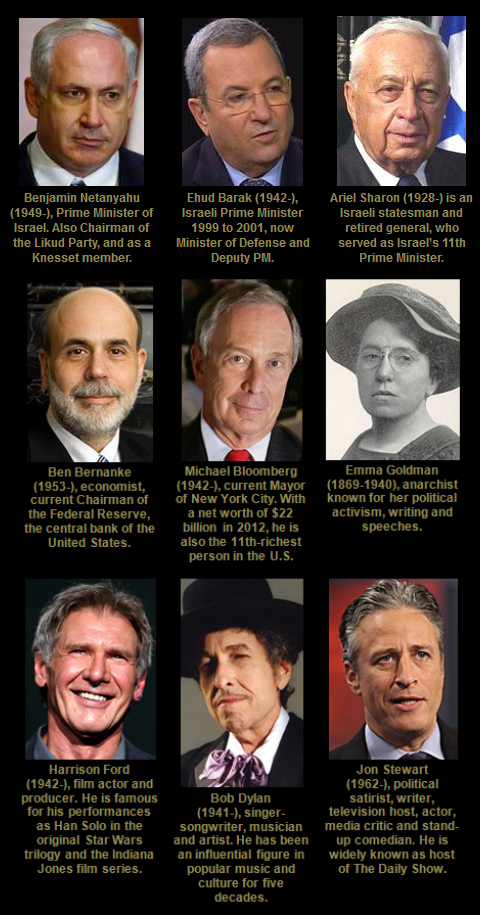
- Bookmark :
- Digg
- del.icio.us
- Stumbleupon
- Redit it
- Posted by - (0) Comment
![]()
USA and the relationship between the Lithuanian-Americans and their homeland was substantially covered in our VilNews editions during April and May 2012.
- Bookmark :
- Digg
- del.icio.us
- Stumbleupon
- Redit it
- Posted by - (0) Comment
The tragic story of how one third
of Lithuania’s population became
victims of Soviet terror

In June 1941, the first massive arrest and deportation of the Lithuanian population was perpetrated. A cargo of 17.500 people were crammed into cattle cars. Moscow’s instruction often required separation of men from their families: some 4.000 men were separated and transported to concentration camps in the Krasnoyarsk territory while 13.500 women, children and elderly people were transported mostly to Kazakhstan, the Altai Mountains territory, Russia’s republic of Komi, the Tomsk region, and the Arctic zone.
Read more 1…
Read more 2…
Read more 3…
Read more 4…
Read more 5…
Read more 6…
Read more 7…
Read more 8…
VIDEO: A TRIBUTE TO THOSE WHO SURVIVED SIBERIA
- Bookmark :
- Digg
- del.icio.us
- Stumbleupon
- Redit it
- Posted by - (0) Comment
Lithuania 1944 – 1953:
The longest and bloodiest
guerilla war in modern Europe

Tell a Lithuanian that his country was liberated and that peace after WWII was restored on the 9th of May 1945, as the Russians claim. Tell him that this May 2011 it is 66 years since the Soviet Union and the Western world defeated Hitler’s Nazi regime, and that Lithuania since then has been a free, happy country in line with what other European countries experienced after they were occupied in 1939 – 1940 and liberated in 1945.
Do not be surprised if you get an angry and annoyed look back. For while we in the Western world, in Russia and in other parts of the world joyfully could celebrate the liberation and the recovered freedom after the World War, Lithuania, the other two Baltic states, and Ukraine were forced to realize that one war had been replaced by a new, much bloodier and more protracted war, lasting from 1944 to at least 1953. What we in the west celebrated in May 1945 was by Lithuanians and the other occupied countries experienced only in 1990 –1991.
Read more 1…
Read more 2…
Read more 3…
VIDEO: Oh little falcon
This video features a song composed by Lithuanian partisans during their fights against the Soviet intruders (1944 – 1953).
Muzika ir dainos is CD “Uz Laisve, Tevyne ir Tave”- cia naudotos ne pelno tikslais.
Oh, little falcon, where are you coursing?
Maybe carrying some news home,
What is new, what did you hear?
In that beloved country?
Oh, you partisan, son of woe,
Why are you asking for such news?
Winds are stirring in your farm,
The entire country is in sorrow.
In your farm — uneven furrows,
Your home stands neglected,
And there far away, in between the birches
Are three new graves.
One grave — your mother’s,
Another grave — your father’s,
And the third sandy grave –
Is your youngest sister’s.
- Bookmark :
- Digg
- del.icio.us
- Stumbleupon
- Redit it
- Posted by - (0) Comment
To continue Soviet-style thinking, is to lose Lithuania as a country
 Valdas Samonis: In the early 1990s Lithuanian President Algirdas Brazauskas, a former communist leader, lectured the international body of economists and management specialists that the Soviet system was an equally good alternative to any Western market economy and the Soviet system brought obviously great achievements to the LT people. I left that conference early not being able to cope with my shame (as a Lithuanian) before my distinguished international colleagues!
Valdas Samonis: In the early 1990s Lithuanian President Algirdas Brazauskas, a former communist leader, lectured the international body of economists and management specialists that the Soviet system was an equally good alternative to any Western market economy and the Soviet system brought obviously great achievements to the LT people. I left that conference early not being able to cope with my shame (as a Lithuanian) before my distinguished international colleagues!
- Bookmark :
- Digg
- del.icio.us
- Stumbleupon
- Redit it
- Posted by - (1) Comment
Where are the new ideas for Lithuania?
|
|
|
|
1200sKing Mindaugas’ grand idea was to found the Lithuanian State!Lithuania’s only king is also credited with stopping the advance of the Tatars towards the Baltic Sea and Europe, establishing international recognition of Lithuania, and turning it towards Western civilization. |
|
|
1300sGrand Duke Gediminas’ idea was to found Vilnius as one of the World’s leading and tolerant citiesGediminas was also the true founder of ‘The Grand Duchy of Lithuania’. He was a man of extraordinary knowledge and wisdom, offering free access into Lithuania to Europeans of every order and profession. |
|
|
1400sVytautas the Great’s idea was to expand‘The Grand Duchy of Lithuania’ to the Black SeaVytautas the Great was the Grand Duke expanding the Grand Duchy‘s frontiers from the Baltic Sea south to the Black Sea and thereby creating the by then largest country in Europe. The Grand Duchy was at its largest by the middle of the 15th Century. |
|
|
1500sSigismund the Old’s idea was to connect Italy and Lithuania, with the help of Leonardo da Vinci!When Lithuania’s Grand Duke, Sigismund the Old in 1518 married the Italian Princess Bona Sforza, this became an outstanding manifestation of the already strong relationship between Italy and Lithuania. The royal couple created together an Italian community within the court and Italian culture became the preoccupation of the Vilnius city elite. |
|
|
1700s
|
|
|
1875-1911Čiurlionis’ idea was to describe Lithuania’s soul in his art and musicDuring his short life Lithuania’s national composer and painter, Mikalojus Konstantinas Čiurlionis, composed about 250 pieces of music and created about 300 paintings. His works have had a profound influence on modern Lithuanian culture. |
|
|
1918Antanas Basanavičius’ grand idea was to reclaim independence for LithuaniaAs a member of the Council of Lithuania he was a signer of the Act of Independence of Lithuania on the 16th of February 1918 (signed in the building at the picture to the left). Basanavičius is often given the unique informal honorific title of the "Patriarch of the Nation". |
|
|
1918-1940President Antanas Smetona had the idea of again making Lithuania a successful, remarkable nationSmetona was undoubtedly Lithuania’s most importantpolitical figure between the two wars. He served as President from 1919 to 1920, and again from 1926 to 1940. Smetona was also one of the famous ideologists of nationalists in Lithuania. The country was truly flourishing under his presidency. |
|
|
1945-1990Lithuanians who were forced to leave their home country had the idea of keeping on fightingThe post World War II wave of Lithuanian immigrants experienced a surge of Lithuanian consciousness. They saw themselves as exiled communities and clung to their memory of two decades of freedom in Lithuania. They also made numerous efforts to support Lithuania’s freedom fight. |
|
|
1945-1990Lithuania had the idea to improve its infrastructure even during Soviet yearsDespite huge post war difficulties, Lithuania managed to build around 450 km of four-lane motorways from Vilnius to Klaipėda and Panevėžys. Result? Lithuania got the best roads in East Europe! At the same time Klaipėda port was developed as a leading Baltic transport hub, connecting East and West.. |
|
|
1960-1990Despite the oppression, Lithuanian experts had the idea to make Lithuania the Soviet Silicon ValleyStill today Lithuania is a world leading exporter of femtosecond lasers. Among the clients is NASA, using Lithuanian laser technology for analyses of minerals on Mars! A country of 3.2million people, Lithuania, has about 15 laser producers, employing about 300 laser specialists! |
|
|
1988 – 1991Professor Vytautas Landsbergis had the idea that his masses of unarmed Lithuanians could win over the mighty Soviet army
|
|
|
1990 – 2010Post Soviet Lithuania’s sport and culture had the idea to remain on world levelI let two of the most prominent figures within these fields represent the fantastic flora of ideas and pure guts sport and culture is playing for Lithuania; Music Professor Donatas Katkus (left) and former basketball player Arvydas Sabonis. Remarkable!! |
|
|
2000 – 2010The idea of Vilnius Mayor Arturas Zuokas’ was to build Lithuania’s Manhattan, the new office districtVilnius’ Mayor, Arturas Zuokas, earned his place in Lithuania’s history with his energetic efforts to build a new skyscraper city within the city. |
|
|
2012 – 2020President Dalia GrybauskaitėPrime Minister Andrius KubiliusPlease let us know what are your ideas and visions for the future development of Lithuania.NEW IDEAS, NEW SPIRIT IS VERY MUCH NEEDED! |
- Bookmark :
- Digg
- del.icio.us
- Stumbleupon
- Redit it
- Posted by - (0) Comment
Russia can turn the lights out on
Lithuania any time it pleases

Russian-controlled energy infrastructure in the Baltic areas
Text: Dr. Stan Backaitis
P.E., SAE Fellow, USCBSC Consortium, member of CEEC
Russia can turn the lights out on Lithuania and the other two Baltic states any time it pleases. And they can't turn them back on without Russia’s permission.
Not only does this small, central European nation, as well as its neighbors Latvia and Estonia, not have access to the Russian owned-switch, but, to a large extent, it also depends on energy supplies from Russia to power its electricity generating plants; power that is needed for energy and economic independence. Lithuania as well as the other Baltic countries, being poor in energy resources, are facing a tough future and are seeking solutions. What would you do?
- Bookmark :
- Digg
- del.icio.us
- Stumbleupon
- Redit it
- Posted by - (0) Comment
Searching for the Holy Grail?
Come to Vilnius!
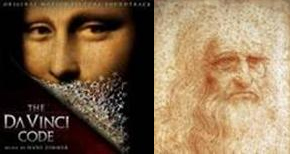
Forget Rosslyn Chapel in Scotland. Forget the Louvre Museum in Paris. If you're among the millions who have read Dan Brown's book 'The Da Vinci Code', you have probably also made some reflections on how the Holy Grail disappeared, virtually without a trace, after Leonardo da Vinci died in 1519. In that case I will now give you some hints and clues that you can begin to investigate.
- Bookmark :
- Digg
- del.icio.us
- Stumbleupon
- Redit it
- Posted by - (0) Comment
SPEAKERS CORNER!
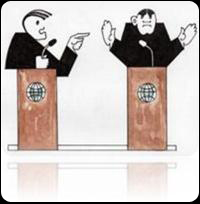
Good debate and response from readers has always been a very important part of VilNews. Section 5 here in the e-magazine is devoted to this purpose, and we encourage all our readers to share their views and comments on various topics having to do with Lithuania and Lithuanian matters around the world - be it commenting our VilNews articles or other topics.
Send your letters to
editor@VilNews.com
TOPIC 1:
Holocaust in Lithuania
A reader in the USA wrote the following one-sentence ‘letter’ to the editor of VilNews:
"May Lithuania rot in hell for a 1000 years."
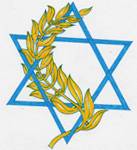
This ‘letter’ resulted in several posts and comments from our readers around the world. We in the editorial team have been very impressed by how informative and balanced most of the posts have been.
It is this kind of open, intelligent debate that is needed to build bridges across the gap that emerged in the relationship between Jews and Lithuanians during and after World War II.
Read the posts…
- Bookmark :
- Digg
- del.icio.us
- Stumbleupon
- Redit it
- Posted by - (0) Comment
- Bookmark :
- Digg
- del.icio.us
- Stumbleupon
- Redit it
- Posted by - (0) Comment
TOPIC 3:
People who think that those who left Lithuania had a comfortable life, are sadly mistaken
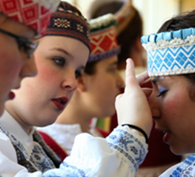
- Bookmark :
- Digg
- del.icio.us
- Stumbleupon
- Redit it
VilNews e-magazine is published in Vilnius, Lithuania. Editor-in-Chief: Mr. Aage Myhre. Inquires to the editors: editor@VilNews.com.
Code of Ethics: See Section 2 – about VilNews. VilNews is not responsible for content on external links/web pages.
HOW TO ADVERTISE IN VILNEWS.
All content is copyrighted © 2011. UAB ‘VilNews’.

 Click on the buttons to open and read each of VilNews' 18 sub-sections
Click on the buttons to open and read each of VilNews' 18 sub-sections 







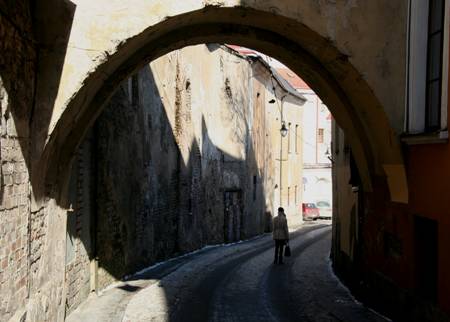






























.jpg)



